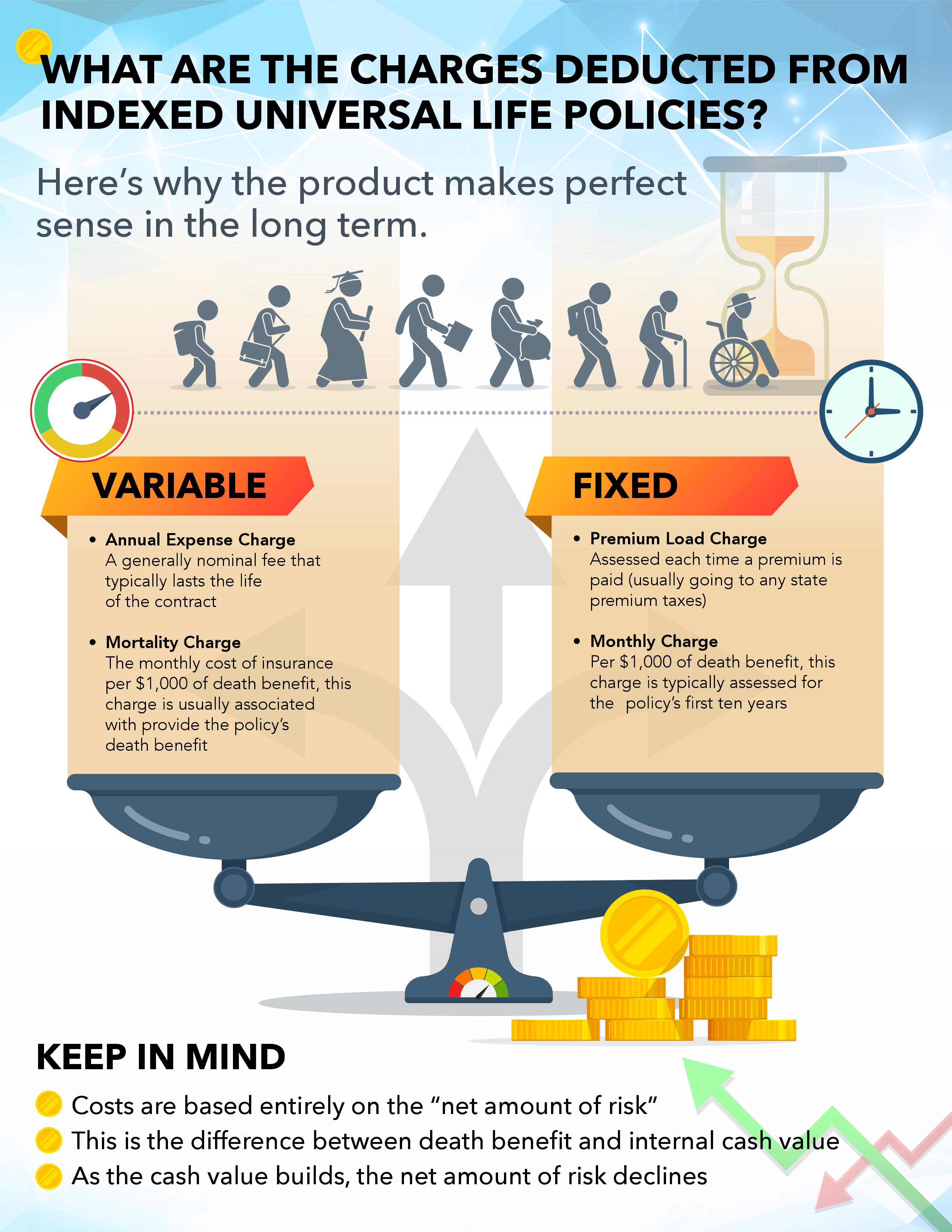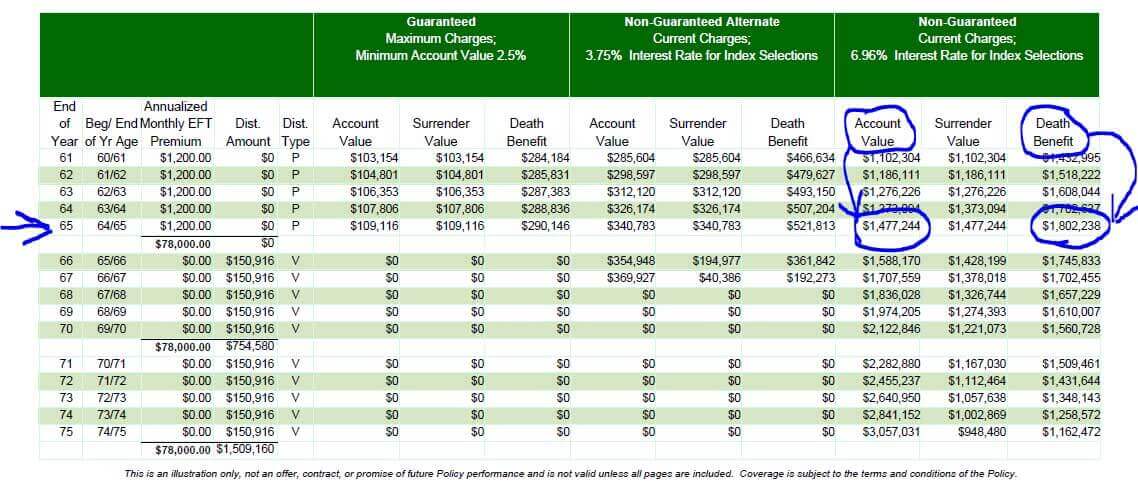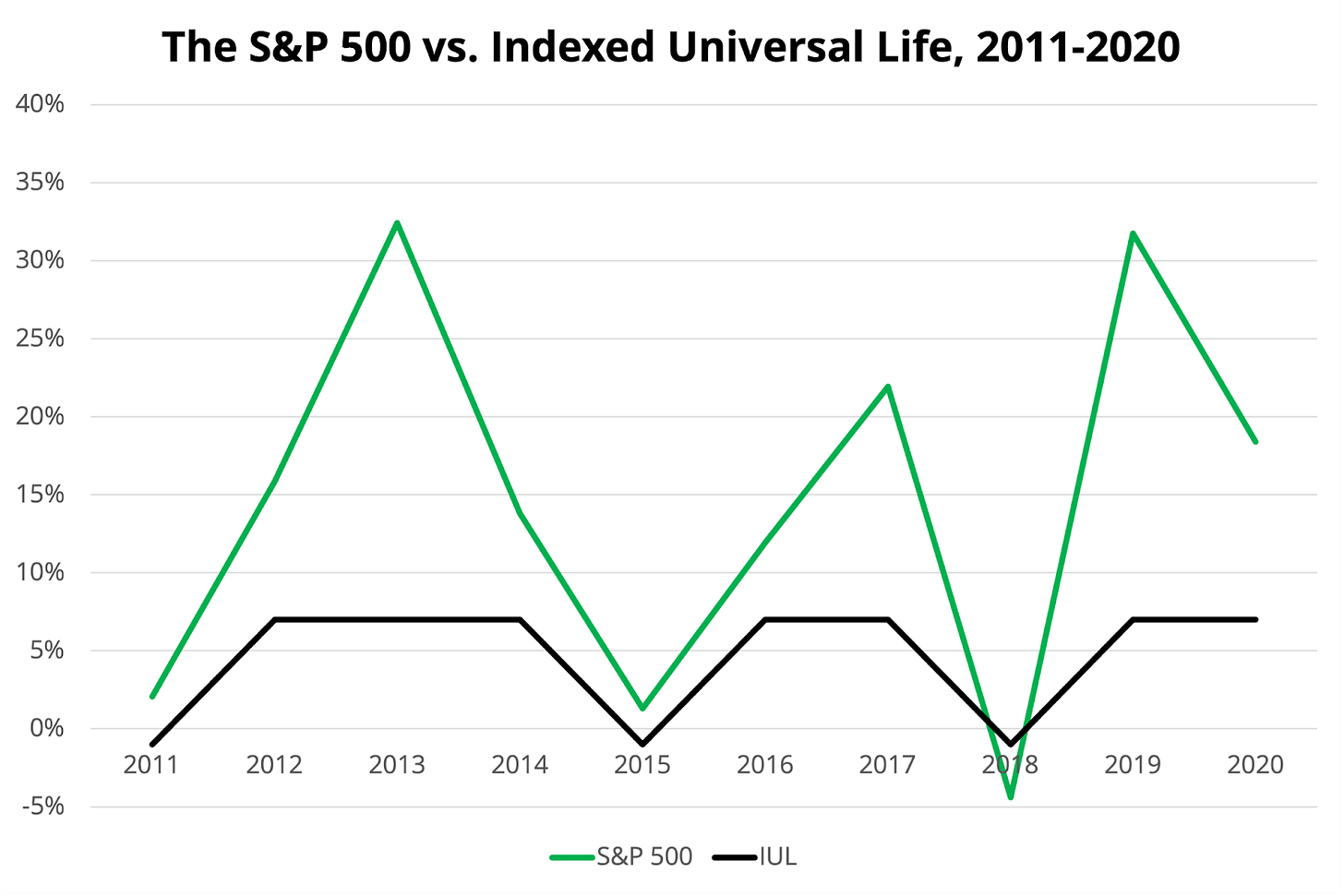All Categories
Featured
Table of Contents
Do they contrast the IUL to something like the Vanguard Total Amount Supply Market Fund Admiral Shares with no tons, an expense ratio (EMERGENCY ROOM) of 5 basis factors, a turnover proportion of 4.3%, and an exceptional tax-efficient record of circulations? No, they contrast it to some dreadful proactively handled fund with an 8% tons, a 2% ER, an 80% turn over proportion, and a horrible document of temporary capital gain circulations.
Common funds commonly make yearly taxed distributions to fund proprietors, even when the value of their fund has actually decreased in value. Shared funds not only need earnings reporting (and the resulting annual taxes) when the shared fund is increasing in value, yet can additionally impose earnings taxes in a year when the fund has actually gone down in value.
That's not how mutual funds work. You can tax-manage the fund, collecting losses and gains in order to decrease taxable distributions to the capitalists, yet that isn't in some way mosting likely to change the reported return of the fund. Only Bernie Madoff types can do that. IULs prevent myriad tax catches. The ownership of shared funds might need the common fund proprietor to pay projected tax obligations.

IULs are easy to place so that, at the proprietor's death, the beneficiary is not subject to either earnings or inheritance tax. The exact same tax obligation decrease strategies do not work virtually as well with shared funds. There are countless, commonly costly, tax obligation traps connected with the moment acquiring and marketing of shared fund shares, catches that do not relate to indexed life insurance policy.
Possibilities aren't really high that you're mosting likely to undergo the AMT as a result of your shared fund circulations if you aren't without them. The remainder of this one is half-truths at finest. While it is real that there is no income tax obligation due to your successors when they acquire the earnings of your IUL plan, it is also true that there is no revenue tax due to your beneficiaries when they inherit a shared fund in a taxed account from you.
Meaning Of Universal Life Insurance
The government estate tax obligation exception limitation mores than $10 Million for a pair, and growing every year with rising cost of living. It's a non-issue for the vast bulk of doctors, much less the rest of America. There are far better means to stay clear of estate tax obligation issues than buying investments with reduced returns. Mutual funds may create earnings taxation of Social Safety benefits.

The growth within the IUL is tax-deferred and may be taken as tax free income via financings. The policy proprietor (vs. the shared fund manager) is in control of his/her reportable income, hence enabling them to lower and even get rid of the tax of their Social Protection advantages. This set is wonderful.
Here's an additional very little problem. It's real if you buy a shared fund for state $10 per share right before the distribution date, and it disperses a $0.50 distribution, you are after that going to owe taxes (possibly 7-10 cents per share) regardless of the fact that you haven't yet had any kind of gains.
In the end, it's actually concerning the after-tax return, not exactly how much you pay in taxes. You are mosting likely to pay more in taxes by making use of a taxed account than if you purchase life insurance. But you're likewise possibly mosting likely to have even more cash after paying those taxes. The record-keeping demands for possessing shared funds are significantly a lot more intricate.
With an IUL, one's records are maintained by the insurance provider, copies of yearly declarations are sent by mail to the proprietor, and distributions (if any) are totaled and reported at year end. This is additionally sort of silly. Certainly you should maintain your tax documents in situation of an audit.
Universal Life Option A
All you have to do is push the paper right into your tax obligation folder when it appears in the mail. Barely a reason to acquire life insurance policy. It resembles this individual has actually never bought a taxable account or something. Mutual funds are typically part of a decedent's probated estate.
In addition, they are subject to the delays and expenditures of probate. The earnings of the IUL plan, on the various other hand, is always a non-probate distribution that passes outside of probate straight to one's named beneficiaries, and is therefore not subject to one's posthumous creditors, undesirable public disclosure, or similar delays and costs.
We covered this under # 7, but just to evaluate, if you have a taxable shared fund account, you need to put it in a revocable trust fund (or also much easier, make use of the Transfer on Death classification) in order to prevent probate. Medicaid disqualification and life time earnings. An IUL can provide their owners with a stream of earnings for their whole life time, despite for how long they live.

This is beneficial when organizing one's events, and converting possessions to revenue prior to an assisted living home confinement. Mutual funds can not be converted in a comparable way, and are often taken into consideration countable Medicaid assets. This is one more stupid one supporting that inadequate people (you recognize, the ones that require Medicaid, a federal government program for the bad, to spend for their retirement home) ought to utilize IUL as opposed to shared funds.
Iul Life Insurance Canada
And life insurance policy looks dreadful when contrasted fairly versus a pension. Second, individuals who have cash to buy IUL above and beyond their pension are mosting likely to need to be dreadful at handling cash in order to ever before receive Medicaid to pay for their assisted living home prices.
Chronic and incurable illness motorcyclist. All policies will enable a proprietor's easy access to cash from their policy, usually waiving any abandonment charges when such people endure a major ailment, require at-home treatment, or come to be constrained to a retirement home. Common funds do not provide a comparable waiver when contingent deferred sales fees still apply to a shared fund account whose owner requires to sell some shares to fund the expenses of such a remain.
Index Universal Life Insurance Cost
You obtain to pay even more for that advantage (cyclist) with an insurance plan. Indexed global life insurance coverage provides fatality benefits to the recipients of the IUL proprietors, and neither the owner nor the beneficiary can ever shed cash due to a down market.
I certainly don't require one after I get to financial self-reliance. Do I want one? On average, a purchaser of life insurance policy pays for the real price of the life insurance coverage advantage, plus the costs of the policy, plus the earnings of the insurance coverage company.
Universal Term Life
I'm not completely sure why Mr. Morais included the entire "you can't lose cash" once again here as it was covered quite well in # 1. He just wished to repeat the best selling point for these things I intend. Once again, you do not lose small dollars, however you can shed actual dollars, as well as face major opportunity expense as a result of reduced returns.

An indexed global life insurance policy plan owner may trade their plan for an entirely different policy without activating revenue tax obligations. A mutual fund proprietor can not relocate funds from one mutual fund firm to one more without marketing his shares at the previous (thus causing a taxed event), and repurchasing new shares at the last, typically based on sales costs at both.
While it is real that you can trade one insurance plan for another, the reason that people do this is that the initial one is such a dreadful policy that also after acquiring a new one and experiencing the early, adverse return years, you'll still appear ahead. If they were offered the appropriate plan the very first time, they should not have any wish to ever before exchange it and experience the early, unfavorable return years once more.
Latest Posts
Universal Life Insurance Company Phone Number
Wrl Ffiul
Universal Life Guaranteed Rate